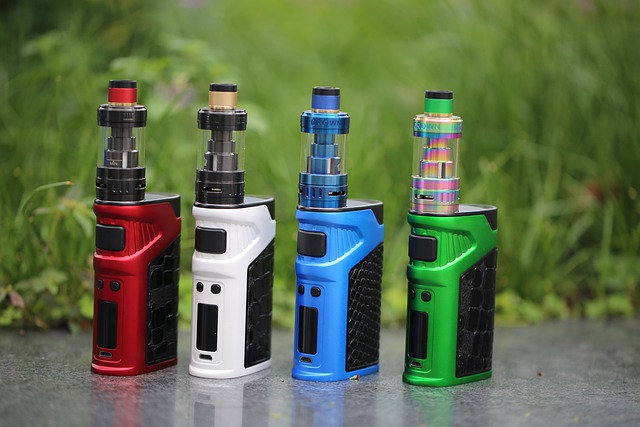Product Liability Lawsuit Filed Against L’Oréal For Its Hair Relaxer
 Recently, a woman filed a lawsuit against cosmetics manufacturer L’Oréal and several other companies. She alleges that hair straightening products put her at increased risk of uterine cancer and asked for monetary damages and the cost of medical monitoring. In the research studies that support the case, the link between hair relaxers and uterine cancer was strongest among black women. It is believed that the recently filed lawsuit is one of many potential suits to come that involve companies that misled women about the safety of hair relaxers to increase profits. If you developed uterine cancer because of a hair relaxer, you should give the seasoned Chicago-based lawyers of Moll Law Group.
Recently, a woman filed a lawsuit against cosmetics manufacturer L’Oréal and several other companies. She alleges that hair straightening products put her at increased risk of uterine cancer and asked for monetary damages and the cost of medical monitoring. In the research studies that support the case, the link between hair relaxers and uterine cancer was strongest among black women. It is believed that the recently filed lawsuit is one of many potential suits to come that involve companies that misled women about the safety of hair relaxers to increase profits. If you developed uterine cancer because of a hair relaxer, you should give the seasoned Chicago-based lawyers of Moll Law Group.
Call Moll Law Group About Your Uterine Cancer Case
The plaintiff in the case that was recently filed was 32-year old Jenny Mitchell who is a woman of color that started getting hair relaxers around third grade when she was age 8. The complaint alleges her uterine cancer was both directly and legally caused by long-term and regular exposure to chemicals that disrupt the endocrine system, including phthalates. She used chemical straightening products between 2000-2022 and is asking for compensation of more than $75,000. She was diagnosed with uterine cancer in 2018 and had to undergo a full hysterectomy, as a result of which she cannot bear a child. She does not have a known family history of uterine cancer.
In connection with her lawsuit, she said that most young African American girls are introduced to chemical hair straighteners as young girls. She alleged that society has made straight hair the norm; many people feel pressured to straighten their hair and use hair relaxers. Black and Latina women who don’t straighten their hair may experience workplace discrimination, and that further incentivizes the use of dangerous relaxers.
 Illinois Injury and Mass Tort Lawyer Blog
Illinois Injury and Mass Tort Lawyer Blog






 Around 20,000 women get an ovarian cancer diagnosis each year. For more than half, the illness is fatal. Johnson & Johnson has spent billions on lawsuits related to talc. A recent piece in the New Yorker outlined the
Around 20,000 women get an ovarian cancer diagnosis each year. For more than half, the illness is fatal. Johnson & Johnson has spent billions on lawsuits related to talc. A recent piece in the New Yorker outlined the  Initially, Juul Labs sold pods for its e-cigarettes in a wide range of flavors and promoted them using strategies that would appeal to young people. Teens began vaping at school, between classes and during breaks. However, in recent years, the company has come under scrutiny; the public has learned that teens are getting addicted while vaping, and harmed. Recently, Juul announced that it will pay close to $440 million to
Initially, Juul Labs sold pods for its e-cigarettes in a wide range of flavors and promoted them using strategies that would appeal to young people. Teens began vaping at school, between classes and during breaks. However, in recent years, the company has come under scrutiny; the public has learned that teens are getting addicted while vaping, and harmed. Recently, Juul announced that it will pay close to $440 million to  President Biden recently
President Biden recently  Exactech is a leading maker of implant systems, medical devices, used in joint replacement surgeries. The company had recalled all its knee, hip & ankle replacement implants made after 2004 when it was found that a packaging defect resulted in degradation of a polyethylene insert prior to use. When an insert prematurely fails, a patient may experience severe pain; the failure may necessitate a revision surgery to replace it. Recently, in the course of a hearing, the cases were
Exactech is a leading maker of implant systems, medical devices, used in joint replacement surgeries. The company had recalled all its knee, hip & ankle replacement implants made after 2004 when it was found that a packaging defect resulted in degradation of a polyethylene insert prior to use. When an insert prematurely fails, a patient may experience severe pain; the failure may necessitate a revision surgery to replace it. Recently, in the course of a hearing, the cases were  Recently, Hamilton Medical AG
Recently, Hamilton Medical AG  On August 15, 2022, the manufacturer 4moms
On August 15, 2022, the manufacturer 4moms  U.S. bankruptcy Judge Jeffrey Graham
U.S. bankruptcy Judge Jeffrey Graham  In a recent decision, a jury has
In a recent decision, a jury has  Recently, Epoch Everlasting Play
Recently, Epoch Everlasting Play